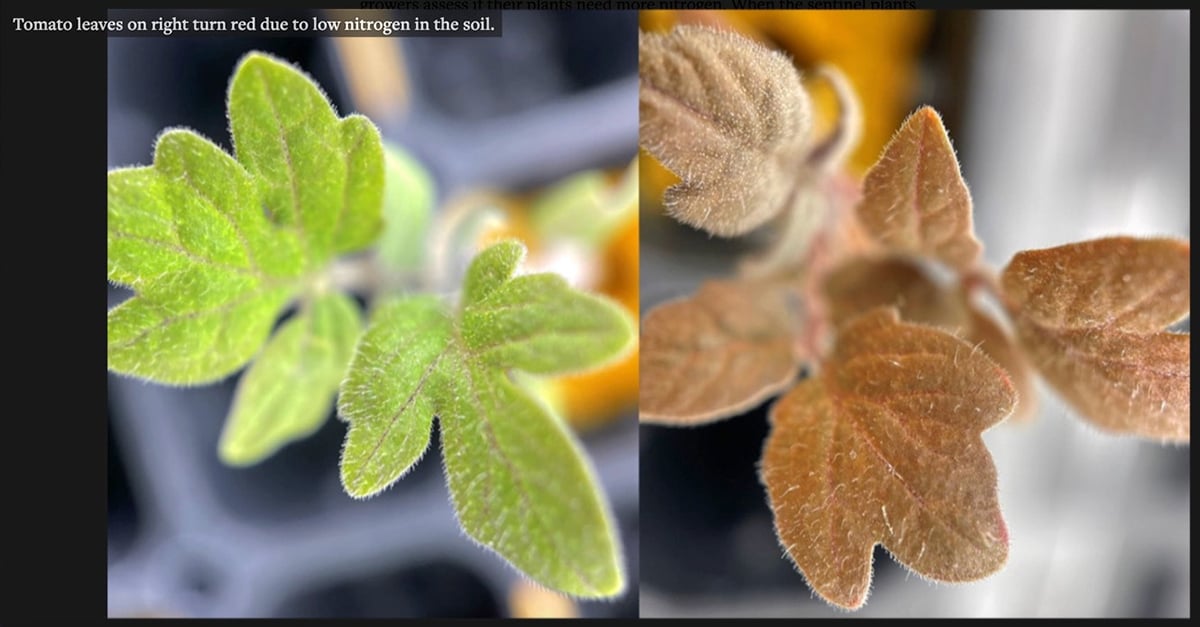Les Burwash is disappointed in the decision and said horse owners need someone who can help sift through the ‘foo foo dust’
The last of the Alberta government cowboys has ridden off to retirement.
Les Burwash, the lone member of Alberta Agriculture’s horse industry branch, was a budget statistic and terminated April 7.
“I was asked to retire,” said Burwash from his Airdrie government office a week after losing his job.
“I’m disappointed. Yes, after 40 years I am getting long in the tooth, but we’ve had no succession plan in Alberta. Yes, there is talk someone will replace me, but where has the mentorship been? Who knows what will happen.”
Read Also

American researchers design a tomato plant that talks
Two students at Cornell University have devised a faster way to detect if garden plants and agricultural crops have a sufficient supply of nitrogen.
Burwash was finishing research projects and conducted a horse extension course days after he was given the news.
“We’ve made commitments. We have to see them through,” said Burwash, who was hired as a horse specialist in 1974.
Mike Long, communications director for Alberta Agriculture, said the decision was made so that the department could focus its resources on core programs.
“As a result, we have reassessed roles and are reallocating and prioritizing resources in the department to ensure that service to the horse industry continues to be met,” he said.
“A direct contact will be established shortly.”
The horse branch’s staff has shrunk from three to one and now zero, but Burwash said there is still a need for unbiased information about feeding, raising and buying horses.
“There is still a great number of people in the horse industry who have no livestock experience,” said Burwash.“We need to keep going back to the basics. If you look in horse magazines, people try to sell owners everything under the sun. There needs to be someone to help owners sort out the foo foo dust from reality.”
He said one-third of Canada’s horses are in Alberta, and the need for good information is as strong now as it was when he was hired in 1974, along with Doug Milligan, to become horse specialists similar to those who worked with the dairy, beef and swine sectors.
“Doug and I were hired to develop programs and services that were designed to meet the needs of the horse industry in Alberta.”
Bob Coleman later joined the branch, and the trio crisscrossed the province conducting research projects and hosting extension workshops to increase the knowledge of horse owners and breeders.
They created the Alberta Horse Improvement Program, an evaluation checklist that horse owners could use when buying and assessing horses.
Horse shows had become “very faddish” and weren’t promoting the best in the breed, he said.
“It was a way to help evaluate and give producers a guideline and a way to evaluate horses to encourage high quality horses,” he said.
The specialists organized the popular Horse Breeders and Owners Conference in Red Deer for 33 years as a way to promote education to horse owners.
The show was later run under the umbrella of the Horse Industry Association of Alberta.
Burwash, an equine livestock genetics and reproduction specialist, also taught horse owners how to establish and operate artificial insemination programs.
The branch’s nutrition research in the 1980s led to modifications to the National Research Council horse feed recommendations.
The number of horses has steadily decreased, and breed associations struggle to encourage membership.
Burwash said the horse industry is fragmented into small groups with no unified voice.
“There is no one industry that speaks on behalf of the horse industry,” said Burwash, who believes that fracturing allowed the government to eliminate his position.
The Horse Industry Association of Alberta takes the lead on breeding and marketing, and the Alberta Equestrian Federation focuses on sport and recreation.
“When you don’t have one voice, the government doesn’t have to listen.”
mary.macarthur@producer.com














